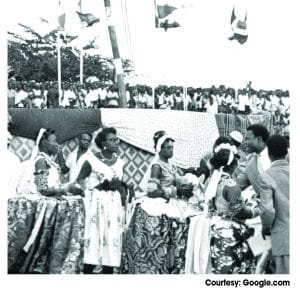
In 1985, the Babangida administration appointed Professor Jibril Aminu as the Minister for Education; this was a welcome development as he appeared to be a much-needed breath of fresh air. Coming from the Nigerian Universities Commission where he served as the Executive Secretary for so many years, it was reasoned that he was best suited to remedy the rot that was destroying the sector by adopting the same bottom-up structure that was laid by our Founding Fathers. Professor Aminu was seen as one who could drive such a policy for the approval of the then Supreme Military Council. During his tenure, Professor Aminu instituted The National Primary Education Commission and the Nomadic Education Commission to address the basic education of our children from Primary 1 to 6. Not wanting to leave anyone uneducated, he launched with huge fanfare, a mobile school to cater for the shepherds.
Subsequently, the new Minister assembled the best brains and managers of education from all over the country, tasking them with the responsibility of revamping the crumbling education system. In less than 5 years of the 2 commissions’ existence, teachers’ salaries, welfare and other outstanding benefits were attended to promptly, new qualitative curriculum were adopted, and finally schools infrastructure were being built and completed all over the country.
The successes of the two commissions became so widespread that the politicians felt threatened and grossly side-lined that they vehemently moved for its abolition, more so since the commissions operated independently from the then Ministry of Education. For reasons I cannot understand, the military rulers acquiesced. The Minister was deployed to Petroleum Ministry and in a twinkle a decree disbanding the commissions was enacted. In a bid to be perceived as fair they appointed Professor Babatunde Fafunwa, who was the Chairman of one of the commissions as Minister of Education, cleverly silencing potential critics. Then changes in government became more rampant from military to civilian and civilian to military and with every change the sycophants celebrated because such changes came with renewed hope and huge expectations for their interests, not the nations. More than a decade ago a very good friend of mine, Akin Olukiran, who is a contributor to this column, in a publication in another newspaper titled Madam Nigeria and her 36 Prodigal Sons on 12th of December 2010, stated that; “We only use 0.7% of our GDP on education whilst our cousin Ghana devotes 4.78% of her GDP to education, no wonder my people are shamelessly sending their children in droves to Ghana for education”. Akin must have compared what actually went to core education, as Nigeria is known to lump the budget of departments and agencies that support education ministry within the overall education budget. This front loading is therefore deceitful. Be that as it may, the education budget spanning the years 2010 to 2020 ranges from 5.23% to 9.94% of our annual budget in those years. The United Nations through UNESCO recommends a benchmark of 26% of annual budget should go for education. Little wonder why ours has crumpled so badly. We can also see why ASUU has gone on strike 22 times between 1992 and 2020 with the attendant adverse effects on university education and research in the country.
I have gone through all this trouble and to this length because be it politicians in military uniforms or military men in political attire, we have continued to move backwards and somewhat speedily not only in education, but also in health, infrastructural development, economic growth and most recently but extremely worrisome, in security. The only group that can be seen to move forwards are the politicians with their jumbo salaries.
As ones who masterminded the Biafra war now metamorphosed into the IPOB movement in the South East, instituted the OPC in the South West, fuelled the militancy in the Niger Delta, and now encouraging banditry in the North East even while making certain the Nigerian Military is unable to defeat Boko Haram, the onus lies on them to bring some sort of peace and sanity to the entire country. But that in itself is a phantom of a wish. Just this month in my Hometown Akwukwu-Igbo in Delta State with a population of less than 50,000 people, the local government elections conducted over 2 weeks ago witnessed a 6-hour gun battle between two political factions. As at the time of this writing, some people are still in hiding. This is doubly disheartening because unlike in the past where one would hide in one’s farmland, we no longer have the luxury of our farms because they have all been overtaken by our belligerent neighbours, the Herdsmen.
All these go to show that we have learnt nothing from history which incidentally is no more a subject of instruction in our schools. I must warn that we honestly cannot sweep our dirty history under the rugs for ever. One day and hopefully very soon, the rugs will be turned over and everything will be revealed, the bad, the very bad, and the wicked. Presently, I am certain that even the blind can see that the country is drifting further into a journey to the abyss. However, we can still stop the drift by having serious conversations among well meaning Nigerians that know her history, are patriotic, have national pride, and are prepared to put aside partisan and sectional sentiments in order to see the country taken away from those among us who do not believe in one man one vote; those who do not believe that government is solely for the people and should be by the people; and banish from power those who do not believe in leaving the country better than they met it.